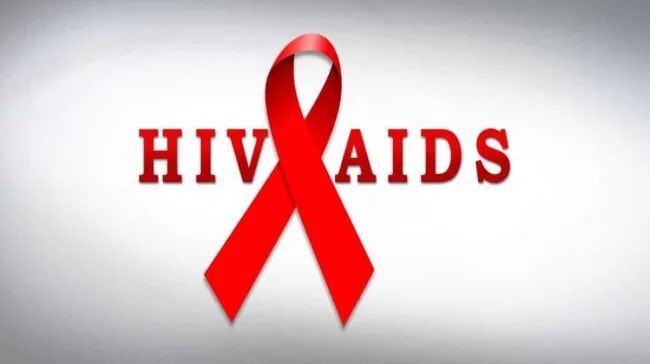
“Even Me Sef, Economy Don Show Me Shege” — Tiwa Savage Opens Up On Struggles As A Single Mother

In a raw and relatable revelation that has struck a chord with fans across Nigeria and beyond, Afrobeats queen Tiwa Savage has lifted the veil on her personal struggles with the current economic downturn, stating plainly that she, too, has not been spared by the financial hardship gripping the country. The award-winning singer, who is also a single mother, didn’t hold back in expressing just how brutal the times have become, saying she hustles “night and day” to make ends meet — a startling confession coming from one of the most celebrated musical exports out of Africa.
Tiwa’s candid admission came via her Instagram story, where she reposted a humorous skit that depicted several bank branches with a voiceover urging people to consider loans — a piece of satire on the economic desperation felt by many Nigerians. While the original post was meant to evoke laughter, the gravity of Tiwa’s own situation shone through as she added her voice to the moment, writing, “Because even me sef, the economy don show me sege. I’m a single mother abeg. I dey hustle night and day. May God bless us all.”
The phrase “don show me sege,” a popular Nigerian pidgin expression meaning “I’ve seen serious hardship,” instantly lit up social media, with fans expressing both concern and admiration for the singer’s transparency. Many applauded her for using her platform to speak on the harsh economic realities affecting millions — even those in the spotlight — while others found some solace in knowing they were not alone in their financial battles.
At a time when inflation continues to climb and the cost of basic necessities has reached staggering levels, Tiwa’s words reflect a broader crisis felt acutely by Nigerian families. For single mothers like herself, the burden is often heavier, with the responsibility of nurturing a child resting solely on their shoulders. And while celebrity status can often insulate entertainers from some of life’s day-to-day challenges, Tiwa’s post was a stark reminder that no one is truly immune when the system is failing everyone at once.
For someone who has sold out arenas, graced global stages, and collaborated with international stars, Tiwa’s admission that she, too, is struggling hits differently. It’s a reminder that beneath the glitz and glamour, she is still a mother, a provider, a woman navigating her way through a turbulent economy that makes even the basics of survival — food, housing, education — a daily grind. It’s not the first time she’s opened up about her life offstage, but this time, her tone struck a deeper chord, one that echoes the frustration, fatigue, and faint hope that millions are feeling.
Fans were quick to flood her comment sections and reposts with words of encouragement. Some shared their own stories, others simply thanked her for keeping it real. In a digital age where many celebrities present curated images of perfection, Tiwa’s honesty was a breath of fresh air — even if laced with a bitter truth. It also reignited a conversation about the mental and emotional toll of single parenting in a country where social support systems are thin, and public policies barely consider the needs of working mothers.
Many observers noted that Tiwa Savage, despite her fame and fortune, has always shown a grounded side — one that has consistently connected her to the pulse of ordinary Nigerians. Whether through her music, fashion choices, or public statements, she has built a brand rooted not just in entertainment but also in emotional authenticity. This latest confession adds yet another layer to that image, highlighting her resilience and relatability in the face of a shared crisis.
The music industry itself has not been spared from the economic crunch. Rising production costs, fewer sponsorship deals, and a struggling entertainment infrastructure mean that even top-tier artists are feeling the squeeze. Tours and concerts, often major income streams for performers, have also been affected by currency fluctuations and declining consumer spending. In such a landscape, the hustle becomes even more real, and for artists like Tiwa Savage, every gig, every endorsement, and every project carries the weight of financial necessity, not just artistic passion.
This moment also comes at a time when Tiwa is expected to be in a creative phase, with rumors swirling about an upcoming project or album. Yet her words make it clear that behind the scenes, she’s not just thinking about melodies and lyrics — she’s crunching numbers, budgeting bills, and doing what every Nigerian parent does daily: trying to stay afloat. Her brief but powerful message gave fans a window into the life of a woman who might be famous, but who is also fiercely human, shaped by the same economic storm battering households across the nation.
In a country where expressions of vulnerability are often seen as weakness — particularly for women in the public eye — Tiwa’s statement becomes all the more powerful. It challenges the narrative that success erases struggle, or that fame shields one from the pains of societal collapse. And perhaps, in some subtle way, it calls on leaders and policymakers to pay attention, because if someone like Tiwa Savage is crying out about “shege,” then the situation has truly reached a critical point.
As reactions continue to pour in and conversations swell around her statement, one thing is clear: Tiwa Savage didn’t just share a moment of frustration — she sparked a national reflection. And in doing so, she reminded us all that empathy, honesty, and shared humanity might be the most powerful things we have left in these trying times.


